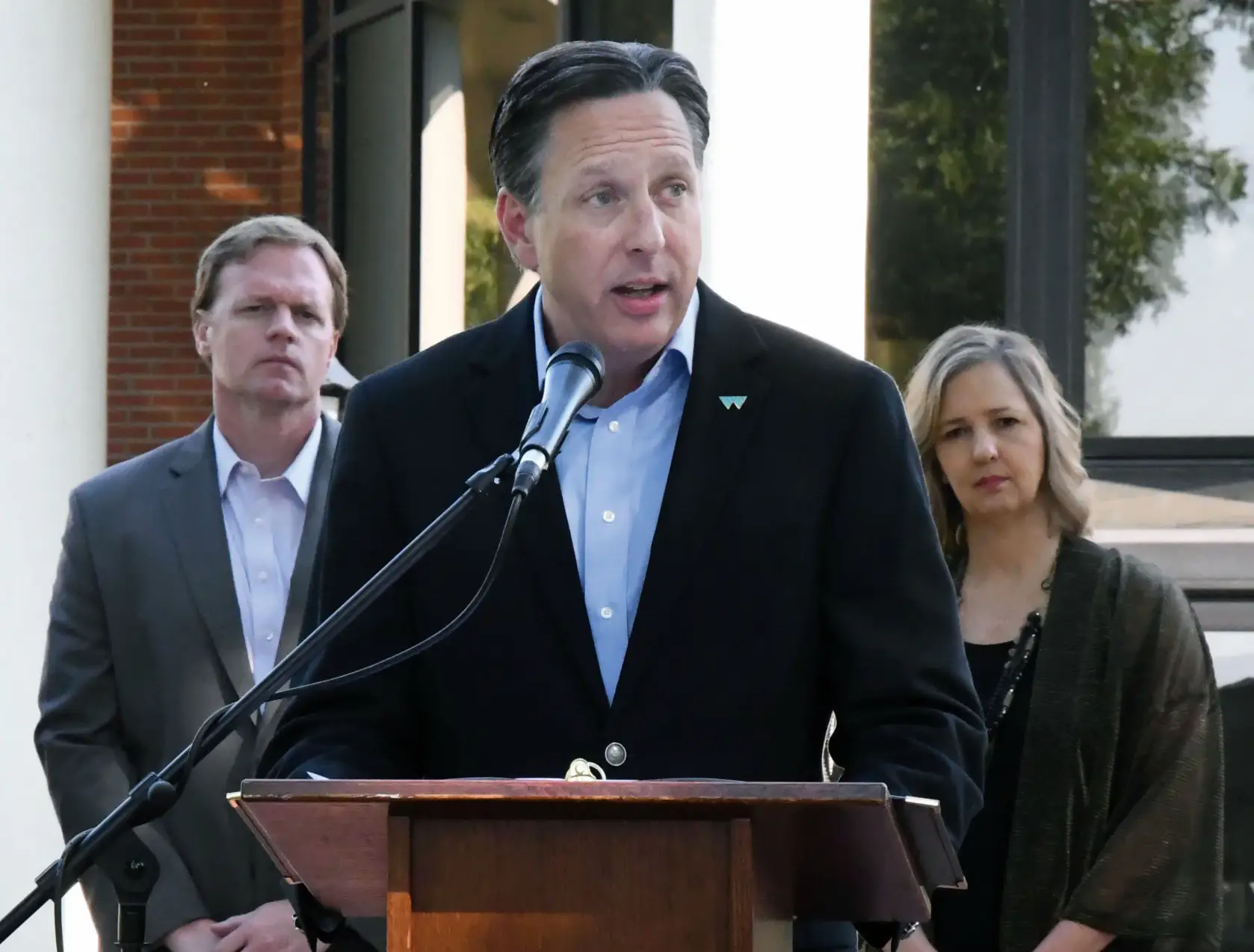
WALNUT RIDGE – With the cost of higher education on the rise, graduating debt-free has become increasingly difficult for many students. But a new initiative announced by Williams Baptist University (WBU) could provide students an affordable path to earning a degree while building character along the way.
At a press conference Sept. 16 outside of WBU’s Swaim Administration Building in Walnut Ridge, WBU President Stan Norman introduced Williams Works, a program with the goal of making “an academically excellent, Christ-centered university education affordable for all families – with a real possibility of students graduating debt-free.”
Analyzing the problem of the exponential cost of higher education, Norman said that WBU’s leadership concluded that the tuition-driven model that has long been the standard for most colleges and universities is simply not as effective as it once was in providing sufficient funding for schools or affordable financial scenarios for students.
“It is no secret that the cost of higher education has become daunting, a burdensome challenge for many students and their families. This is manifested in student loan debts that hang over the heads of college graduates and weighs heavily upon them at a time when they are attempting to launch their lives and their careers,” said Norman.
“As of today, we are beginning a transition to doing things a new way. The new way of doing things is called Williams Works,” he said.
Williams Works, which was approved by WBU’s Board of Trustees Sept. 13, will launch in the Fall 2020 semester. The initial phase of the program will include 40 incoming freshmen, who “are willing to work for their education,” said Norman.
In exchange for working 16 hours per week during the fall and spring semesters at a job assigned by WBU, the students in the program will be compensated in the form of the cost of their education at WBU – including their tuition and fees. Students will also have the opportunity to have their room and board expenses covered through working over the summer.
“Let me be clear; these are real jobs with real responsibilities. Students selected for Williams Works will need to be willing to work, to develop a serious work ethic and to be willing to learn how to manage their time well,” said Norman. “But (for) those who are willing to work, the reward is an affordable, debt-free education at an outstanding Christian university.”
One of the employers of Williams Works students is Eagle Farms, a farm that will be located on WBU’s campus in the current location of the school’s intramural football field.
“Eagle Farms will begin by producing fruits and vegetables. It will start on about 10 acres of land. We anticipate this farm growing in years to come,” said Norman. “With 90 acres of farmable land on our campus, Eagle Farms has plenty of room to grow.”
According to Norman, WBU’s campus is home to more than 100 pecan trees. The trees will be a source of agricultural jobs for students employed through Williams Works.
Another source of employment will come from community partnerships with local businesses in the Walnut Ridge area.
“Custom-Pak, the closest industry to the WBU campus, has already agreed to be a part of Williams Works,” said Norman. “Custom-Pak has had a great experience hiring WBU students in the past and has expressed eagerness to partner with us to help our students work to earn their education.”
Williams Works students will also be employed in campus positions.
Applications for the inaugural, 40-member Williams Works cohort are currently being accepted. According to Norman, the program is expected to grow to 80 students in 2021 and 120 students in the third year of the program.
“WBU’s transition to a work college model will be incremental and manageable. Williams Works amounts to a transformation of our higher education model,” said Norman.
Beyond the financial benefits of the program, Norman said that Eagle Farms and Williams Works are “an appropriate expression of our mission to equip graduates for local and global engagement from a Christ-centered worldview.
“We are first introduced to God in Genesis 1 as the God Who works. Our God is a working God; He is working to create. We are created in His image, and we reflect God’s image – in part – when we work well, when we work hard, when we work faithfully,” said Norman. “There is a Christian ethic of work, and Williams Works helps us capture that ethic and teach it to our students.”
While Williams Works is a new initiative, its concept is not new to WBU. The school’s founder, H.E. Williams, once ran an auto repair shop, rice and soybean farm and radio station – among other local ventures – as a way to employ students and infuse Williams with revenue.
“In a real sense, Williams Works returns the university to the core principles embedded in the school at our founding – the value of work as part of the educational experience,” said Norman.
For more information on Williams Works or to apply to the program, visit williamsbu.edu/williamsworks.
Contact Caleb Yarbrough at [email protected].

